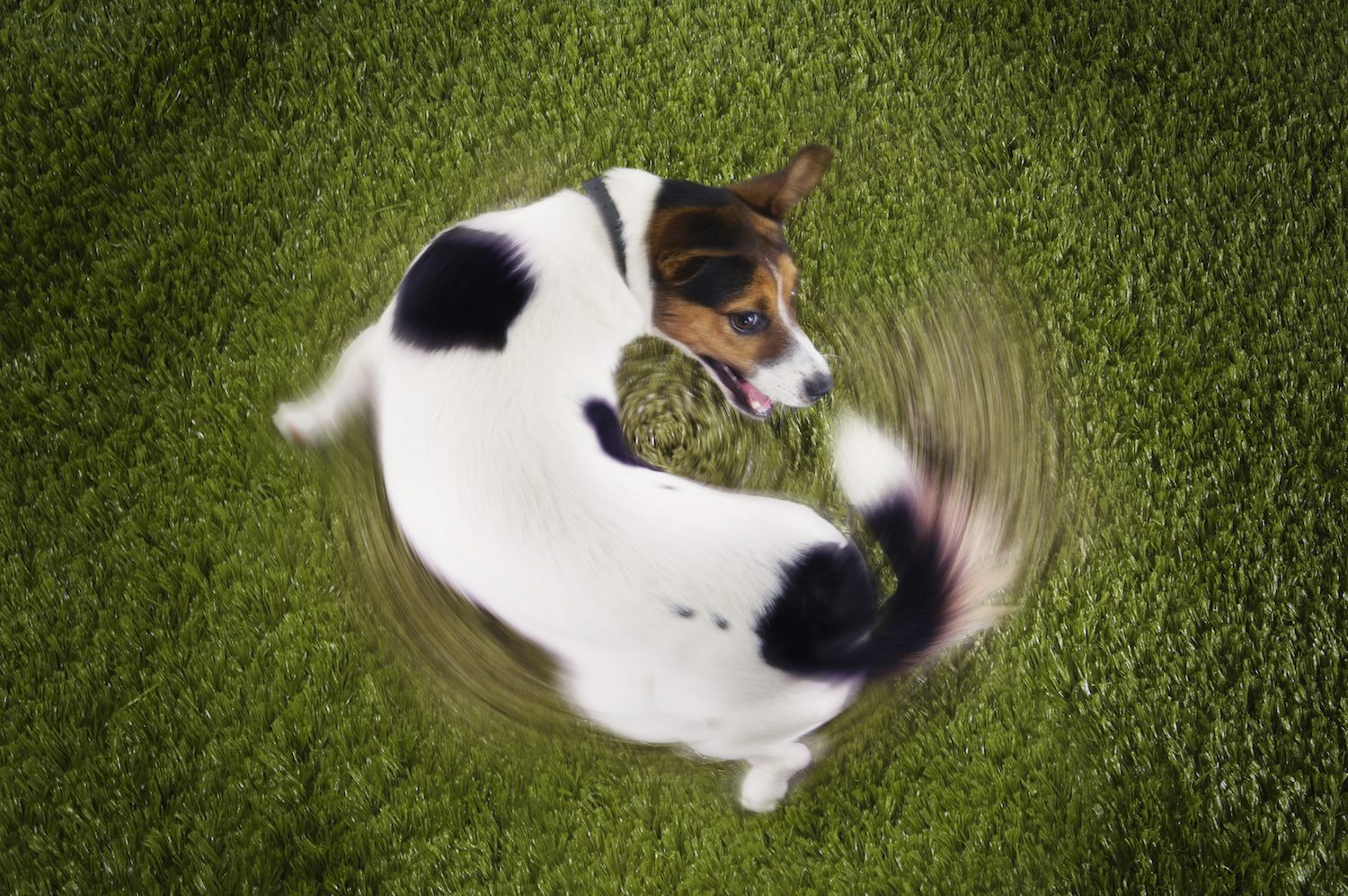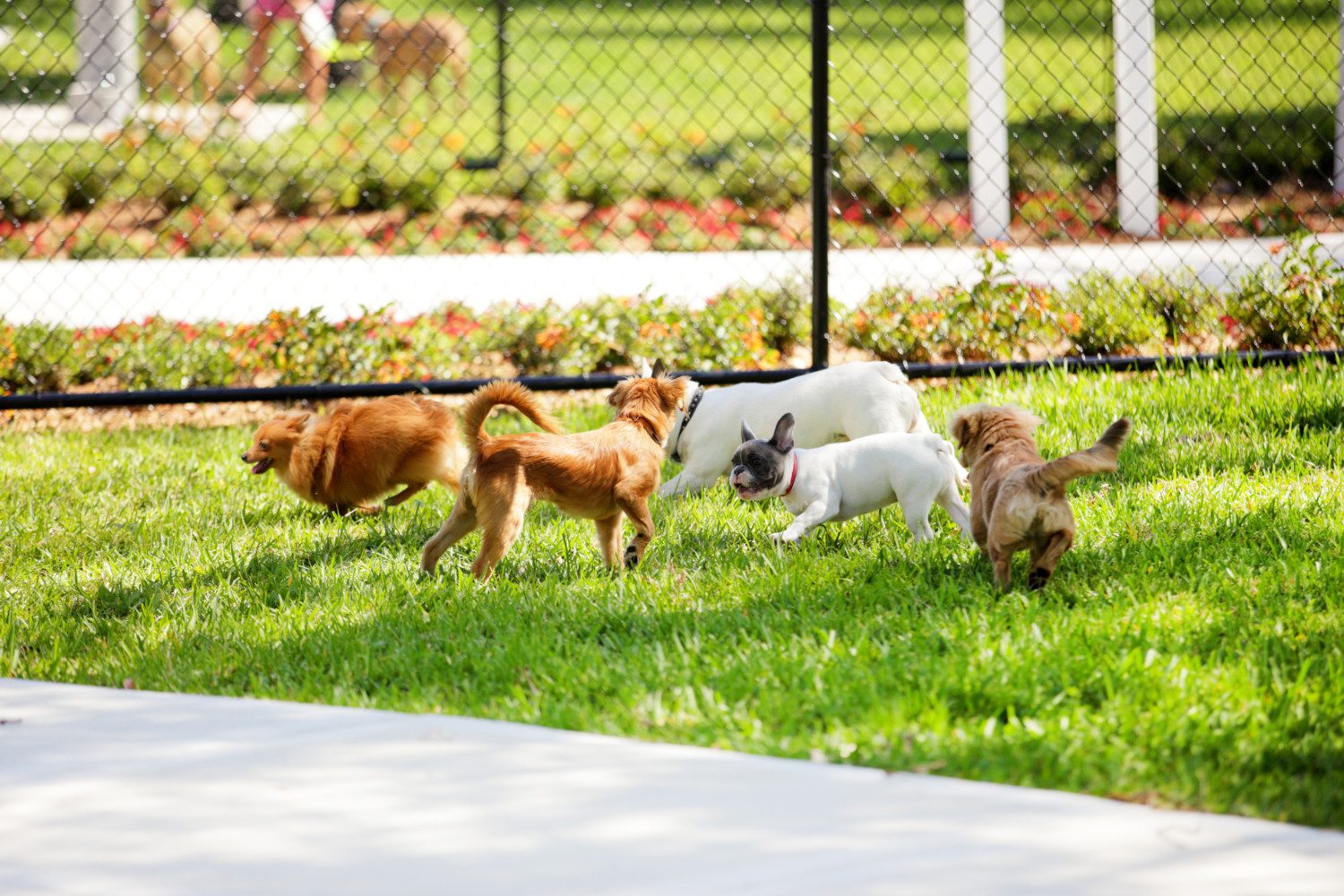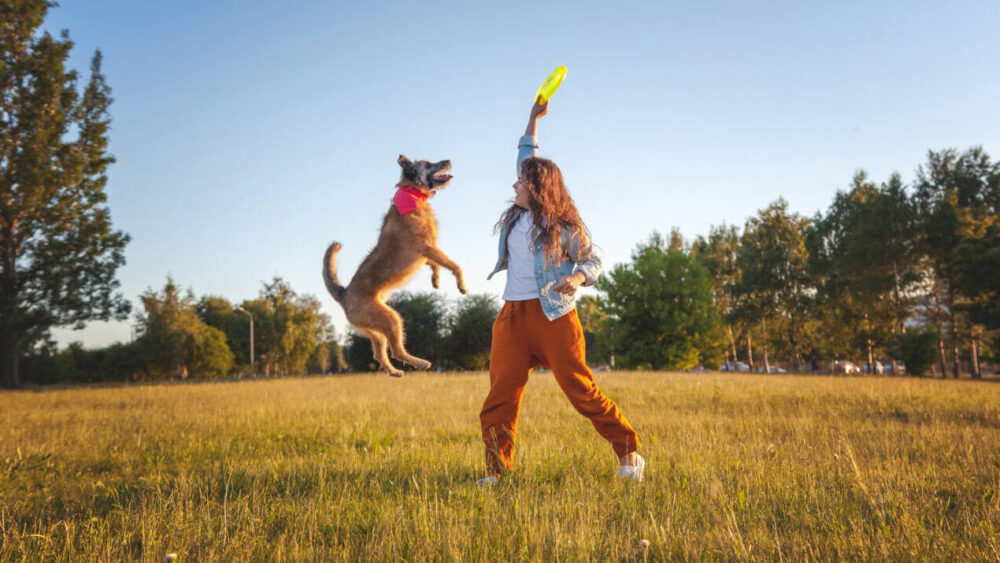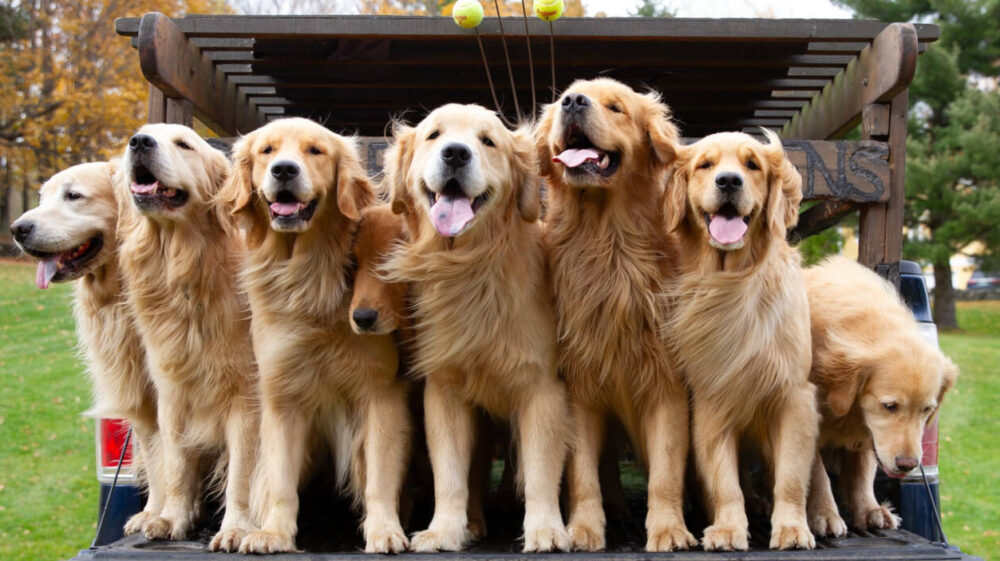Here’s why dogs chase their tails

If you live with a puppy, you know how hilarious it is to watch them do zoomies around the house, spill their water bowls, step in food dishes, and chase their tails. Tail chasing seems playful, and it’s certainly a part of the journey as puppies learn that their tail is just an extension of their body! But if it continues through adulthood, pet parents should know why dogs chase their tails.
In fact, this was a frequent topic of discussion when I worked in a veterinary clinic–and it was a concern for pet parents that live with aging dogs.
A few of the reasons for tail chasing include: medical issues, cognitive disorders, playfulness (a.k.a. puppies), or compulsive behavior.
In some cases, of course, it’s just a dog being a dog. Read on to find out more!
1. Compulsive Behavior
Expert Dr. Nicolas Dodman says that tail chasing can be part of a compulsive disorder for dogs. “This implies that the dog has some genetic predisposition toward this behavior when in situations of anxiety or conflict. Being classified as a compulsive disorder also means that the activity has its roots in a natural behavior,” explains Dodman.
In other words, tail chasing may also begin as a displacement behavior. It’s believed to stem from dogs’ natural predatory instincts. If they don’t see their tail as part of them, they may believe it’s something worth chasing and ultimately catching.
Canine experts believe tail chasing, as a compulsion, can be unintentionally reinforced by owner attention.
Stressful situations including a shelter environment are another reason compulsive behavior can occur. Tail chasing in this context can also be categorized as “spinning.” Simply removing the dog from the environment can make a big difference.
2. Puppy Exploration
Puppies may not realize their tail is part of the body! They will grow out of this behavior as they age. This doesn’t require intervention.
3. Cognitive Issues
Tail chewing may be a cognitive issue. I’ve seen similar behaviors in my old dog. Certain older dogs may engage in more repetitive behaviors and may need behavior modification medications.
It could be also be a symptom of cognitive dysfunction. Watching for disorientation or repetitive behaviors like barking at the wall, spinning, and tail chasing is key, as these can be signs of dementia.
4. Underlying Medical Causes
Arthritis, fleas or allergies can all cause a dog to constantly chase and chew their tails.
An underlying medical issue must be treated. If you notice hair loss, licking, or if you think your dog is sore, it’s important to see your veterinarian to rule out something more serious.
5. Just Playing
Some experts don’t feel the need to intervene with tail chasing. Often, the behavior is considered normal.
“Six-month-old Lizzie McSquare chases her tail on a pretty regular basis. She’s hilarious. She zips around for thirty seconds or so in one direction, and then she reverses. Sometimes she reverses again. I do consider it a harmless, but a hilarious way for her to burn off some puppy energy. I’m guessing that she must start to feel dizzy going in one direction and that’s why she reverses. After maybe two minutes, she usually stops,” says dog blogger and expert Irene McHugh.
How To Control This Behavior
According to some experts, you shouldn’t give the behavior any attention, especially if you’re concerned it’s becoming a compulsion and you don’t want it to continue.
Increasing your dog’s activity levels or ensuring they have a puzzle toy to focus on will help distract them from the behavior, too. Other tips:
- Increase your dog’s exercise
- Reduce stress
- Talk to your vet about behavior modification drugs
Some breeds are hard-wired and known for chasing their tails, including German shepherds.
The reasons for tail chasing are wide-ranging. Some dogs simply chase their tails for a few minutes and quickly move on to another activity! It’s nothing to worry about unless you feel it’s becoming an obsession, or causing your dog pain or discomfort.
If you are concerned, be sure to consult with your vet to rule out any medical issues.
Written by Christine Caplan for Rover.







